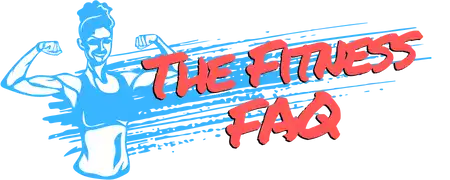The Surprising Link Between Physical Fitness and Language Comprehension
A recent study has uncovered a significant connection between physical fitness and language comprehension in older adults. Researchers from the University of Agder in Norway and the University of Birmingham in the UK have found that enhancing physical fitness can lead to improved language processing skills. This groundbreaking research, published in the journal Ageing, Neuropsychology and Cognition, highlights the importance of regular exercise for maintaining cognitive health as we age. The study specifically focused on older, monolingual adults, revealing that a structured exercise program can improve their ability to quickly understand spoken language.
How the Study Was Conducted
The study involved participants engaging in a six-month exercise regimen. These participants were divided into two groups: one group followed a structured exercise program, while the other served as a control group. The exercise program consisted of circuit training and cardio intervals, such as uphill walking, jogging, or running. Researchers measured the participants’ fitness levels using VO2 max scores, which indicate the maximum amount of oxygen a person can utilize during intense exercise. Following the six-month program, the participants who exercised showed notable improvements in their language comprehension abilities.
The Impact on Language Comprehension
The findings revealed that participants who engaged in regular exercise experienced a 7% increase in speed when recognizing target words in spoken sentences. This improvement demonstrates a clear link between physical fitness and cognitive speed, particularly in language comprehension. These results suggest that even simple, accessible exercises can have a significant impact on cognitive function in older adults. The study emphasizes that regular physical activity is not only beneficial for physical health, but also plays a crucial role in maintaining sharp communication skills as we age.
Monolingual vs. Bilingual Participants
Interestingly, the study also included bilingual participants. However, unlike their monolingual counterparts, the bilingual participants did not show the same improvements in language processing, despite increases in their fitness levels. This suggests that processing multiple languages may place unique cognitive demands on the brain, requiring further research to understand this distinction. This finding highlights the complexity of language processing and how it can be affected by various factors including the number of languages a person knows.
The Broader Cognitive Benefits of Exercise
Beyond language comprehension, numerous studies have shown that exercise positively impacts various aspects of cognitive function in older adults. Physical activity is linked to better memory, attention, and executive function. These cognitive abilities are vital for daily activities, making regular exercise crucial for maintaining independence and quality of life as we age.
Mechanisms Behind the Cognitive Boost
The positive effects of exercise on cognitive function are believed to stem from several biological mechanisms. Exercise increases blood flow to the brain, delivering more oxygen and nutrients which are essential for brain cell health. It also promotes the release of beneficial proteins and growth factors that support the growth of new neurons and the formation of synapses, strengthening neural connections that are key for cognitive functions such as memory and learning. Moreover, exercise helps reduce inflammation and stress, which are known to negatively impact cognitive function.
Types of Exercise that Benefit the Brain
Different types of exercise contribute to cognitive health in various ways. Aerobic exercises, such as walking, running, swimming, and dancing, have been shown to enhance memory, attention, and processing speed. Resistance training can also significantly improve reasoning and attention. Additionally, mind-body practices like yoga and tai chi can enhance cognitive flexibility and overall brain health. The key is to find enjoyable and safe activities that can be incorporated into a regular routine.
Practical Ways to Incorporate Exercise
The good news is that it doesn’t take extreme exercise to reap the cognitive benefits. Simple changes to daily routines, such as taking brisk walks, engaging in light gardening, or incorporating more movement into everyday activities, can make a significant difference. The study from the University of Agder and the University of Birmingham showed that a home-based program, consisting of circuit training and cardio intervals (like uphill walking), was sufficient to produce measurable improvements. Aiming for at least 150 minutes of moderate-intensity exercise per week, as recommended by the World Health Organization, is a good starting point for older adults.
The Importance of Consistency
Consistency is more crucial than intensity when it comes to exercise and cognitive function. Regular engagement in physical activity, even in small doses, provides consistent benefits for brain health. This means that incorporating physical activity as a routine habit is more beneficial than engaging in sporadic high intensity workouts. Making small, sustainable changes in daily routines can have long-term positive effects on both cognitive and physical well-being.
Exercise as a Tool Against Cognitive Decline
The scientific evidence is clear: physical exercise is a powerful tool in the fight against cognitive decline. Studies show that physically active individuals have a significantly lower risk of developing dementia and Alzheimer’s disease. A meta-analysis revealed that adults who engage in regular physical activity have a 38% lower risk of cognitive decline, and even low to moderate activity reduces the risk by 35%. These statistics underscore the vital role exercise plays in promoting healthy aging and maintaining cognitive function well into later life.
Combining Exercise with Cognitive Stimulation
While physical exercise is incredibly beneficial, combining it with cognitive exercises can further enhance brain health. Cognitive-linguistic exercises, such as word games, puzzles, and memory recall tasks, can stimulate thinking, memory, and problem-solving skills. This combined approach of physical and mental activity ensures a more comprehensive strategy for maintaining and improving cognitive function in older adults.
The Future of Exercise and Cognitive Research
The recent findings on the link between exercise and language comprehension have opened new avenues for research. Understanding why bilingual adults don’t show the same improvement in language processing after exercise is a key area for future study. As the population ages, research into effective, accessible ways to maintain cognitive function will become increasingly important. The current evidence strongly supports the role of physical activity in promoting overall brain health and preventing cognitive decline, emphasizing the need for public health initiatives that promote active lifestyles for older adults.
A Call to Action
The message is clear: Incorporating regular physical exercise into daily routines is not just good for the body, it is essential for maintaining a healthy mind. For older adults, physical activity is a vital component of healthy aging, enabling them to stay independent, communicate effectively, and enjoy a higher quality of life. By understanding the link between physical fitness and cognitive function, especially in areas like language processing, we can empower ourselves and our loved ones to live healthier, more fulfilling lives.











